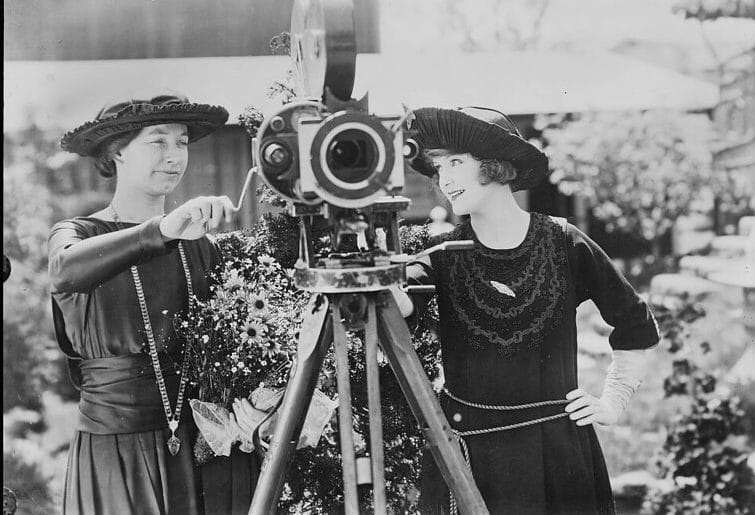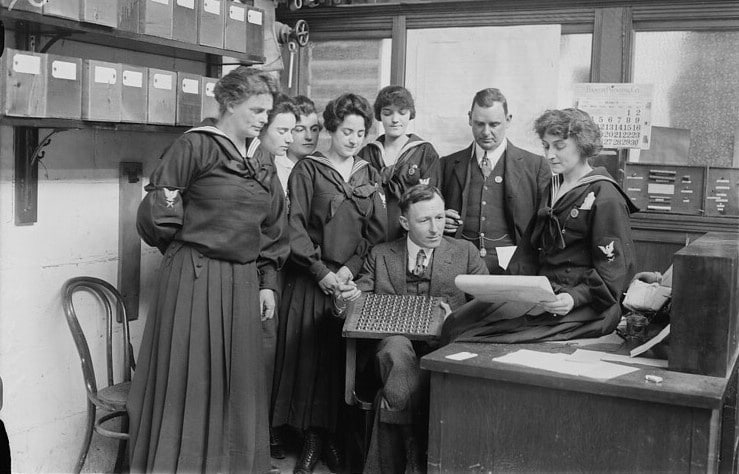Event ROI: Strategies for driving return on investment
We all know that events can be amazing at achieving a whole range of objectives. But without measuring event ROI, do we know that events are truly a success?
Event ROI can be measured in many different ways and it’s part of your role as an event planner to track it in the most relevant way. Tracking ROI is not always easy to do.
In this guide we help you use ROI to understand the value of events and what can be improved upon next time. We share methods for calculating event ROI alongside a few marketing tips that will help you reap results.
What is Event ROI?
Event ROI is the value generated from an event. Note that we say ‘value’ instead of revenue. This is because the value of an event isn’t often demonstrated through the event’s monetary profit. Event ROI informs you of the success of the event itself. Once the event is over, you need to understand whether the event proved valuable and whether you achieved a good ROI.
However, event ROI can be trickier to measure in some cases. It’s important to consider your objectives and how you will measure your success in achieving them. You need to have the resources and data collection in place. How many leads came from the event? Did the right people attend, or the right businesses? How much of the event registration can be attributed to marketing efforts? To ensure that you have enough data to accurately report on your event ROI, you’ll need to be tracking it.
When planning your event, you need to implement strategies that will boost ROI. The key is to increase engagement throughout the day, encouraging sales and interactions from attendees which represents value to the event. Engagement metrics can be hard to track, but as long as your data collection methods are set up correctly, then you should see fantastic results.
Measuring event ROI
So, how do you measure event ROI? Well, the standard ROI formula is revenue divided by cost, but of course this will only serve one definition of ROI. If you’re unsure about how best to calculate return on investment for less tangible metrics, Cvent has provided a few examples for calculating different event ROI models here.
Event ROI can be measured in multiple ways, depending on the type of event, your overall objectives and its KPIs.
So, what is a good ROI for an event? The answer to this question depends on your event ROI definition. In turn, this is based on your overall objectives. Here are some common event objectives:
- Brand awareness
- Accelerating product sales
- Lead generation
- Network
- Raise money for a cause
- Website traffic
You can then set KPIs to determine if your objectives were met. For example, if your objective is based on gross revenue, then you could decide on a metric of 1000 ticket sales, or number of products sold. You can then apply these to the ROI model: revenue over cost (more on this later).
A few common event KPIs are:
- Event registrations / ticket sales
- Cost to revenue ratio
- Cost per customer acquisition
- Speaker engagement
One thing to note is that it’s important to keep ROI calculations consistent, no matter what you track. Find an approach that works for you and your team, and ensure that everyone thoroughly understands your metrics and how to measure event ROI.
In our guide on collecting event data, we’ve listed a few tools that can help you collect the information you need to measure ROI and determine the value of some areas of your event and event marketing.
Event Budget and ROI
Whatever your definition of ROI, the ability to stick to a budget and ideally drive down costs will result in a better return.
When working with a budget for an event, make sure you include all costs and associated overheads. This will ensure you have the full picture of how much the event will cost. If possible, try and leave a little extra for emergencies – this may come in handy down the line.
To stay within budget and boost event ROI, you’ll need to be savvy with some of the costs. Try negotiating with the event sponsors and choose an event venue that has extra facilities included, such as AV and technical support. Since Covid, you’ll need a larger venue to ensure social distancing, which may cost more than usual. So speak to the venue’s events team to find out what’s included in the price to ensure you’re getting the most out of your money.
Here at 20 Bedford Way, we provide a range of affordable event venues located in central London. Our spacious Logan Hall venue comes with a full AV set up, robust WI-FI, and a green room directly accessed from the stage. We’ll work with you to ensure that you make the most of your event budget and increase your event ROI. Find out more about maximising your event budget in our guide.
Strategies that boost event ROI
There are a few techniques you can use to drive your event ROI:
Event Sponsors
To start, obtaining sponsors can help cover the initial costs of the event and can even encourage their own following to attend. This will help give your registration numbers a boost. Click here to read more about finding sponsors for your event.
Sell ad space on event materials
Branded merchandise isn’t the only way partners and sponsors can promote themselves at your event. Selling ad space at your event will reap in some extra cash with little effort, and your partners will appreciate being placed in the spotlight throughout the day.
If presentations are taking place throughout the day, then you have an opportunity to sell advertising space during the first few seconds of that talk. Simply placing the company logo on a slide can help create a more lasting impression for the attendee, and may encourage them to visit the sponsor’s stall or exhibit later on.
Encourage engagement before the day
To give your engagement metrics a boost, start requesting questions and comments for your speakers before the day of the event. Once all your speakers are announced, you can add a form on your event website where users can submit any questions they may have before the day. This can bring multiple benefits:
- Speakers can prepare for these questions with thorough answers and handy resources
- It lets you know how many will be attending a particular talk, prospecting their success.
- Helps drive website traffic and engagement metrics, as it encourages attendees to get involved. It could also bring in more event registrations, as people will want to hear their questions answered.
Another way you encourage engagement before the day is by hosting giveaways. Encourage entrants in the lead up to the event, and announce the winner on the day itself. Those who took part in the giveaway will want to be there to see if they’ve won the prize.
Check up on leads
If using event software for registration, then you should be able to see who didn’t turn up to the event, despite purchasing tickets. As mentioned earlier, don’t let these leads go cold. It’s also a good idea to find out why they didn’t attend – maybe it was too far for them to travel in the end, or they realised they would get little out of it? This can be done via surveys emailed post-event.

Image from The Library of Congress via Flickr
Event Marketing ROI
Measuring ROI on your event marketing is often more tangible than overall event ROI. This is because many marketing strategies are focused on lead generation, such as ticket sales, and can be easily reported on.
The first step in measuring event marketing ROI is to identify objectives of the marketing. The metrics you’ll measure depend on the event type, but most commonly relate to event registrations and/or ticket sales.
Once you’ve decided on your goals and event marketing metrics, you need to clearly allocate your budget to each element of your event marketing including platform splits.
As you plan your marketing strategies and set goals, you’ll start thinking about ways to reduce investment and make the most of your money. The key to great ROI is to get the most out of your budget and really maximise value, so you’ll need to utilise cost-effective promotion methods. These could include:
- Paid ads – paid advertising allows you to place your event at the forefront of people’s minds while making the most of your budget. For this, you’ll need to spread your budget across multiple platforms to ensure that the right people see your ad.
- Facebook – Facebook is an essential part of an event planner’s toolkit. You can reach large numbers of people using both organic and paid strategies with little effort.
- Ticketing apps – There are so many ticket apps and event software that you’ll certainly find one within your budget. By building your presence on a ticketing platform, users can quickly purchase event tickets without the hassle of cracking open their laptops. Plus, you can easily send updates as the big draws near, promoting any sponsors, vendors and products. Now, AI can help to make your ticketing more efficient. Read our guide to find out how you can use AI in event planning.
It’s important to remember that your marketing efforts don’t end with ticket sales or registration, but will feed into the overall success of your event and in turn overall ROI.
Strategies that drive event marketing ROI
The strategies listed above are not all you can do to drive event marketing ROI. There are lots of cost-effective methods that will boost your sales and registrations:
Use your email signature
We all know that event planners are busy people, and send many, many emails throughout the day. So make the most of your replies and include the event date, logo and website link in your signature, so anyone you reach out to can learn more.
Email newsletters
Sticking with the email theme, email newsletters are one of the most successful marketing strategies when it comes to driving your event ROI. There are a variety of free and paid email softwares available, and are an effective way of promoting the event and keeping attendees updated, before and after. Newsletter sign ups in themselves can be an ROI metric – you can measure the number of sign ups, and how many tickets were purchased through the emails.
Create incentives
Everyone loves a freebie. But sometimes they can eat into your event budget, making it harder to maximise ROI. So another route you can take is to send out digital gifts before the event, which will entice attendees to turn up on the day and make the most of what your event has to offer. These could be vouchers for food vendors or free training sessions, if they’re part of the event schedule. Offering digital gifts can also help promote event sponsors and vendors, ensuring that they also get the most out of the event.
Make the most of social media
When it comes to event marketing, social media is one of the most cost-effective promotion tools. Many platforms offer both free and paid options that you can utilise to reach your target audience. It’s a great way to build up to the event, and you can encourage attendees to get involved, too. By creating your own hashtag for you, your team and followers to use, you can collect all information, and memories of the event, in one place.
It’s also a quick and effective way to share any updates regarding the event. If there’s a change in speaker lineup or deadlines attendees need to be aware of, then you can alert your followers by sharing these updates on your social media channels. You can then link back to the event website for more information, helping to increase website traffic as well.
Post-event marketing
Your event doesn’t end once the day is over. Staying in touch with attendees and key stakeholders – and those who didn’t attend – creates opportunities to further promote your brand or product. These follow ups also contribute towards your event marketing ROI.
There are many techniques you can use to follow up after an event, such as:
- Follow up email and surveys to determine the event’s success
- If you hosted any giveaways, then don’t just contact the winner. Follow up with those who entered the giveaway but didn’t win, to let them know that there will be future events and opportunities.
- Don’t forget about your stakeholders. They would have played significant roles in your event, and thanking them directly will help keep your relationship with them strong. If they continue to invest in your products, then that will add value to your event and help boost your overall event ROI.
The key thing to remember is to not let these follow ups be a one-time thing. Keep pursuing leads with personalised content. This way, your brand will stay at the forefront of their minds, maintaining brand awareness and may potentially make a purchase further down the line.
Event planning with 20 Bedford Way
Driving event marketing ROI can feel like a stressful task, but with our guide you’ll accurately measure and maximise your return on investment. Here at 20 Bedford Way, our affordable venue spaces are perfect for making the most of your event budget. Our event venues are based in central London and benefit from fantastic transport links. We also offer elegant catering services and the latest technology to ensure that your event is a success.
To find out more about our event services, get in touch today by making an enquiry or calling 020 7612 6143.




